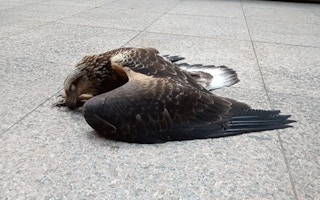After a two-year delay caused by the Covid-19 outbreak, negotiations to create a framework to arrest biodiversity loss — and prevent another pandemic — have rumbled back into life in Geneva at the United Nations Convention on Biological Diversity (CBD). But the main obstacle to a solution to stave off mass extinctions is clear just two days into the discussions.
To continue reading, subscribe to Eco‑Business.
There's something for everyone. We offer a range of subscription plans.
- Access our stories and receive our Insights Weekly newsletter with the free EB Member plan.
- Unlock unlimited access to our content and archive with EB Circle.
- Publish your content with EB Premium.
“The major roadblock is finance,” said Brian O’Donnell, director of the Campaign for Nature, a coalition of conservation groups that is pushing for world leaders to commit to protect at least 30 per cent of the land and sea by 2030 in a deal that will be hammered out first in the Swiss city, and later at the Conference of the Parties to the Convention on Biological Diversity (COP15) in Kunming, China, in April and May.
Speaking to Eco-Business from Geneva on Tuesday, O’Donnell said that the bulk of funding needs to come from wealthy nations, which have the biggest impact on biodiversity.
“I’m from the United States. We are big consumers. We purchase goods from all over the world. That has a negative impact on biodiversity all over the world. But we’re not seeing the appropriate resources going from rich countries to help countries where biodiversity is concentrated,” he said.
Thirty per cent of threats to species globally comes from global trade, which mainly benefits developed countries, while poorer countries suffer most from biodiversity loss, according to a 2012 study by University of Sydney professor Manfred Lenze.
Campaign groups are calling for industrialised nations to set aside at least US$60 billion a year in international finance for developing countries to protect biodiversity.
“
Will we find the finance and political support we need? There’s still a lot of work to do. We can’t reach climate goals without hitting biodiversity goals.
Brian O’Donnell, director, Campaign for Nature
Groups including The Nature Conservancy, a non-profit, estimate that there is a US$700 billion annual deficit in the funding needed to reverse nature loss. The bulk of that could be scraped together by removing expensive subsidies that harm nature, such as those allocated for fossil fuels, destructive fishing and clearing forests for farmland.
“The US and the European block have said they will pay more [to a fund to reverse global species loss], but have not committed to the amount we need,” said O’Donnell. “There’s no indication yet of who will pay what.”
Unlike the US$100 billion annual shortfall in climate finance wealthy countries have agreed to pay developing nations highlighted at the COP26 negotiations in Glasgow, there is less of a sense that the amount needed from wealthy countries to arrest biodiversity loss is overdue, O’Donnell added.
“We are working on a 10-year framework to reverse nature loss, and now is the time to ramp up the finance we need,” he told Eco-Business.
Currently, about US$5.2 billion a year goes into nature conservation, both from philanthropic and public sources.
Indigenous leaders will be pivotal to the negotiations in Geneva, as their traditional practices have been shown to protect ecosystems better than states, according to a report by the ICCA Consortium.
Nature groups calling for more biodiversity funding say Indigenous peoples should be included in the plan to safeguard nature. “The only reason some natural areas are intact is because Indigenous people have been effective stewards of the land,” O’Donnell said.
The other roadblock
Another major obstacle to a deal for nature is political will. Brazil has been the main opponent to a biodiversity framework, and has been using procedural and process arguments “to be clear that they’re not excited” about a plan to protect nature, noted O’Donnell.
Brazilian president Jair Bolsonaro has led an “all-out assault” on the environment in his country, including opening up Indigenous lands to mining and clearing vast swaths of the Amazon, O’Donnell noted.
Argentina is also opposed to the nature framework, because of the nation’s close historical ties with Brazil.
O’Donnell said he was hopeful that a deal for nature emerges towards the end of phase one of the negotations, which conclude on 29 March.
“Will we find the finance and political support we need? There’s still a lot of work to do. We can’t reach climate goals without hitting biodiversity goals. The commitments made in the Paris agreement assumes we’re going to do this [forge a framework for biodiversity] — so we have to,” he said.










